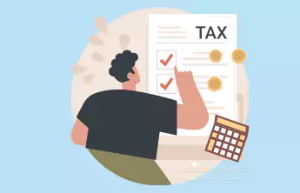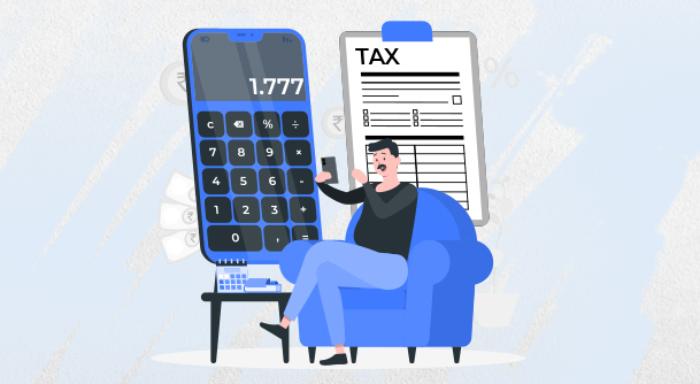The 7 Financial Planning Mistakes You Must Avoid In Your 30s
Blog Title
3271 |
4/13/23 6:11 PM |
Your 30s are an exciting time, professionally and personally (at least for most people)! Not only are you steadily growing in your career, but you are also ticking off some personal milestones along the way. However, most people do not embark on suitable financial planning currently, putting it off for their future years.
Yet, this is arguably the best time to start getting professional financial advice since you’ve mostly figured out your career targets, have a steady income stream, may be married and a parent, have dependents, and have more responsibilities in the household as compared to your 20s. Unfortunately, despite this aspect, most people in their 30s make the mistake of neglecting proper financial planning and analysis while also committing other errors along the way. Here is a guide to avoiding some of these common mistakes while in your 30s.
Personal financial planning in your 30s- Mistakes that you should avoid
Not Setting Financial Milestones and Objectives-
The biggest mistake that you can commit in your 30s is not to set out clear financial objectives. You should ideally have your investment planning chalked out at this time, along with some basic savings and long-term, medium-term, and short-term goals in place. Not committing to goal-specific investment strategies will naturally lead to an aimless financial journey over the years.
You should always have goals listed down, like buying a house, starting a business, buying a car, taking a foreign vacation, covering the higher education of children and their weddings in the future, and so on. This will help you plan the best investment strategies to achieve each of these goals with sound financial advice.
Not Planning for Retirement
It is never too early to plan for retirement! Neglecting retirement planning is another huge mistake that many professionals make in their 30s. While the world may seem to be your oyster at this time, remember that inflation will keep rising in the future, and you will need a sizeable amount of money to maintain the same lifestyle and meet future costs after retirement when you no longer have the same monthly income. You will also have more financial responsibilities in your 30s, and they will only increase over the years. Hence, it is important to start investing to achieve your retirement goals in the future. You can start small and scale up your investment with the passage of time.
A simple example will help you get a clearer picture. If you begin investing Rs. 10,000 each month via an SIP for retirement from 35, then you may earn a whopping Rs. 1.6 crore at 60 years of age, assuming an average annual return of 12% per annum and a total investment of Rs. 30 lakh over 25 years. However, this amount will increase to Rs. 3.17 crore over a 30-year duration, keeping all the other variables intact! This is only an illustrative example that shows you how much you stand to gain by investing early for retirement.
Not Having Any Tax-Saving Strategies in Place
You should consult professional tax planners in order to make your portfolio more tax-efficient. Most people neglect tax savings and end up paying more every year while filing their returns. This is a huge mistake that you will make since you will lose out on savings that can be reinvested elsewhere. You can maximize tax deductions under Section 80C (life insurance plans, ELSS mutual funds, Tax Saver FDs, PPF, etc.) and even Section 80D (Health Insurance Plans, Heath related life insurance riders) with suitable investments while getting tax deductions from your home loan repayments (under sections 24B and 80C). Get professional tax advice at the earliest.
Not Building An Emergency Corpus
Every financial planning blueprint should factor in the creation of an emergency fund for the future. Life is uncertain, and scenarios like sudden expenses, job losses, and other unforeseen costs may lead to mayhem if you are not fully prepared to meet the same. You should always have an emergency corpus in place, which can be quickly withdrawn in case of any emergency. This should be 6-12 months of your salary/income, and you can keep increasing it periodically.
While it's important to keep your emergency fund liquid, it's not wise to leave it entirely in cash or a bank account. You can invest it in a way that provides decent returns while keeping it accessible. One option is to divide your emergency cash between liquid funds, short-term RDs, and debt mutual funds.
For example, if you have Rs.1 lakh saved up, you could consider keeping Rs.20,000 in cash at home, Rs.20,000 in a savings account, and the remaining Rs.60,000 in a liquid mutual fund. This way, you can earn returns while still having quick access to your money if needed.
Not Purchasing Suitable Insurance Coverage
Most people in their 30s often make the mistake of ignoring insurance coverage in their portfolios. You should always have a term insurance policy to financially safeguard your family in case of your untimely demise within the policy period. Along with suitable life insurance coverage, you should also invest in health insurance. This will be a lifesaver (financially and otherwise) for the family in case of any sudden medical costs and hospitalization in the future.
You may also consider insurance and investment plans to meet your future needs, like ULIPs. You can also add riders to your life and health insurance plans to cover other scenarios.
Not Clearing Off High-Interest Liabilities
Another financial mistake made by several young professionals in their 30s is to use credit cards to meet diverse expenses without clearing off the entire debt in one go. This leads to high-interest charges and significant future liabilities that may land you in a soup. Personal loans should also be cleared at the earliest since they come with higher interest rates. Always prioritize clearing high-interest unsecured debt to enhance your loan eligibility, save more money monthly for investments, and avoid paying higher interest costs over a prolonged duration.
Over-Investing In Real Estate
Many professionals in their 30s neglect insurance and other priority investments and instead plonk all their money into real estate. However, it should be noted that real estate is an illiquid asset, and there are no guaranteed returns. Before the pandemic, property prices remained stable due to a slowdown in demand, and any increase was primarily due to input costs. Post-pandemic, demand surged, causing prices to rise, along with developers' input costs. While rental yields have increased across cities in 2021 and 2022, they are still lower than bank fixed deposit rates. Bangalore has the highest rental yield at 3.9%, followed by Mumbai at 3.8%.
Hence, while you should always have a home for the family and possibly an investment property (only if it is feasible) to earn rental income, do not over-expose yourself to real estate and neglect other vital investments.
These are some of the mistakes that you should avoid in your 30s, without a doubt. Make sure that you have a sound financial strategy in place, and do not hesitate to get professional advice for working out the best solutions for your future needs.
Reference: https://www.outlookindia.com/business/interest-on-a-high-yield-on-a-dip-is-real-estate-losing-steam-and-heading-for-a-life-saving-drip--news-263546










